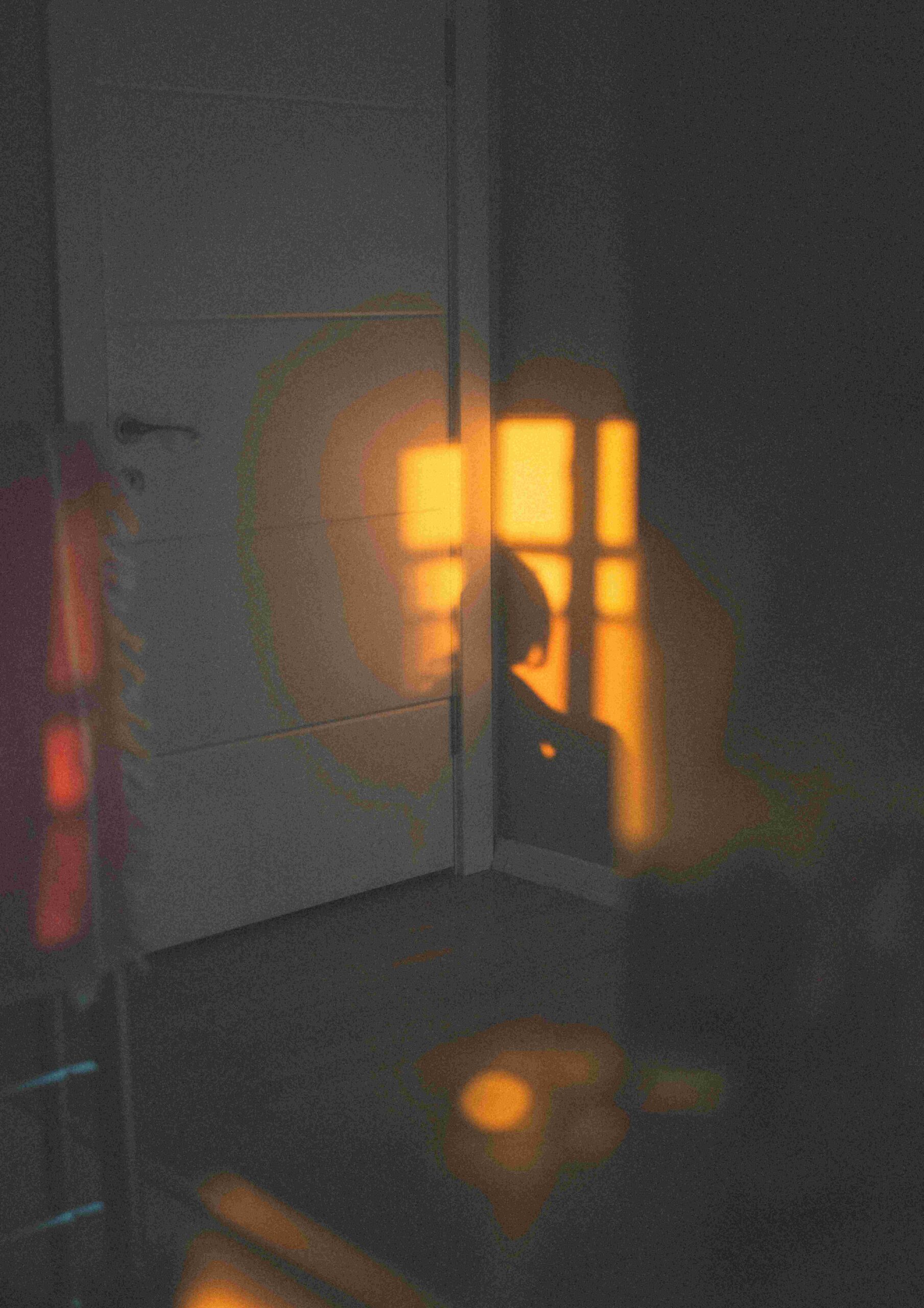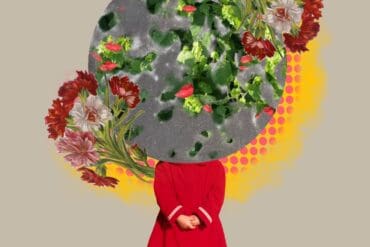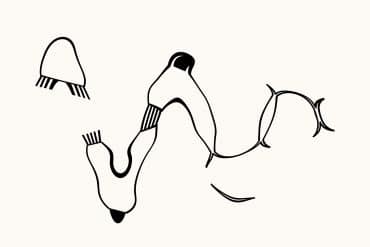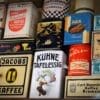Asian Other: A Young Man’s Reflections on Sexuality, Ethnicity and Identity’
Author’s Memo
Perhaps the best way to approach this short story is through the intersectional lens. The narrator’s Chinese identity becomes a racialised ‘Asian other’ identity in a transnational and migratory context. (They even have difficulty identifying with the Chinese national identity, or a specific local and regional identity, becomes of their experiences of internal migration. National identity, therefore, should not be taken for granted even inside a national context.) Western (British in this context) racial and ethnic taxonomies, the complex and evolving global geopolitics, as well as their lived experiences of racism further shape their identity.
The narrator’s Chinese identity becomes a racialised ‘Asian other’ identity in a transnational and migratory context.
The narrator’s sexual identity intersects with their racial and ethnic identity and this shapes their personal identification in specific ways (hence ‘Asian other’). The crux of the story is to understand race and sexuality as interconnected and inter-penetrating categories: race as sexualised and sexuality as racialised, and their interplay results in the marginalisation of queer of colour subjects in both racial/ethnic and sexual communities.

Asian Other: A Young Man’s Reflections on Sexuality, Ethnicity and Identity
It took me quite a while to fill out my online profile. The app is asking too many questions! Don’t they know China is in Asia, and being Chinese already means being Asian? Why bother listing them in two separate categories?
Perhaps I was wrong. Since I arrived in the UK, I’ve noticed when people talk about Asian, they mean South Asian – Indian, Pakistani, Bangladeshi … the vast part of the Asian subcontinent is missing from the picture. There’s an Asian restaurant in my neighboured, but it only serves curry. I’ve heard of a British East Asian actor being turned away from an audition by a theatre casting agency because he’s not seen as properly Asian. I know Britain has a colonial history in South Asia but hadn’t expected the legacy to be so long-lasting.
Shall I say I’m Chinese? Born in Mainland China and speaking Mandarin, Chinese would be my default choice. But I have noticed many cultural stereotypes associated with being Chinese in this country – take-aways, cheap goods, nerdy international students, busloads of tourists who take photos and rush to shops as soon as they get to a destination … and, recently, communist spies.
Don’t they know China is in Asia, and being Chinese already means being Asian? Why bother listing them in two separate categories?
I thought about my ethnicity and decided that being Asian is less dangerous than being Chinese. It’s probably safer to be a victim of racism than to be seen as a government agent – In fact I don’t know about this and nor do I want to find out about this. Fortunately, under ‘Asian’ there is a subcategory called ‘Asian-other’. I don’t know what the term refers to in the statistical sense, but it feels right to describe who I am for the moment.
Haven’t I always felt like being an other, an outsider, even while I was in China? Since I was able to remember things, I was constantly on the move with my parents from one place to another because of dad’s job as a migrant worker. Everywhere we went, we would be seen as outsiders by the locals. I didn’t have many school friends, and lost touch with most of them as I moved away. I don’t speak a local Chinese dialect. Before I could learn to speak a dialect, I would move to a new place where people speak a different dialect. I eventually decided that putonghua, or standard Mandarin, would be my mother tongue. For others, putonghua means the loss of cultural identity; for me, it is part of my own identity.
I thought about my ethnicity and decided that being Asian is less dangerous than being Chinese. It’s probably safer to be a victim of racism than to be seen as a government agent – In fact I don’t know about this and nor do I want to find out about this.
Can I tell you another reason why I felt like an outsider in China? At school there was a boy who didn’t laugh at me for being timid and clumsy on the football field, unlike other children who did. He helped me with my homework and played with me after school. We had lots of fun together. I experienced a strange sensation when he put his hand in front of my trousers. When my parents took me out of the school, ready to move elsewhere, I cried loudly. In every school I went to after that, I would be looking for a friend like him. I grew up alone, and lonely.
Later, I learned to use the Internet, I came across the word tongxinglian, meaning homosexual or gay. It immediately felt like a word I needed to describe myself. I’ve met many men since, and some relationships lasted longer than others. Most of the men I dated eventually entered heterosexual marriages. Not that I had a magic power to turn gay people straight, but the pressures from family and society were too much for many people to bear in a heteronormative society.
I didn’t want to follow my dads’ footsteps, so I chose to study abroad. I was lucky because my parents were supportive of my education. I hadn’t told them about my true motivation to study abroad. I was more attracted to the queer-friendly environment in the UK than the universities which charge an exorbitant tuition fee. But my parents must have seen how lonely and out of place I was in China. They wanted to give me a new start in life with the limited resources they had.
Haven’t I always felt like being an other, an outsider, even while I was in China?
It was a new start for my education, but would it be a new start for my self-discovery? I had no idea. I had heard of terrible experiences of racism that East and Southeast Asian communities had to endure when living in the West. A female classmate of mine was pushed out of a supermarket queue by a white woman, shouting ‘China virus’ and ‘get out of this country’. As an international student new to the country, she didn’t know to whom she could turn for help. I also heard children at school saying to their fellow schoolmates: ‘I’m not Chinese, I’m Malaysian, please don’t treat me badly.’ More and more people in the communities have chosen Asian, or East and Southeast Asian, and consciously distanced themselves from the supposedly evil, virus-carrying and politically suspicious Chinese.
But I simply want a life, a new start in life. I don’t have many Chinese friends. The Chinese student community on campus is very fragmented: most of them study business or engineering; many hang out together for the ease of communication and mutual support; some have rich parents and can afford to buy expensive things and live in luxury … I’m one of the international students who doesn’t have rich parents and who studies an arts degree. I don’t have many British friends either – not that they’re unfriendly, but that they talk very fast about things I don’t know.
Can I tell you another reason why I felt like an outsider in China?
Often, I keep quiet in their conversation, which may give people the impression that I’m not interested in the topics. The real reason is that I haven’t grown up here and don’t know most of the cultural references and therefore cannot contribute to the discussion. In contrast, international students whose first language is not English usually have more patience listening to me speak slowly and explaining cultural references.
I’ve heard that Grindr is the largest English-language dating app, and it seems the only way I can meet gay people in this city. I’ve been to the only gay bar in the city centre and none of the people there were of my age. People seemed to know each other, and no one talked to a stranger like me. I wanted to order a beer, but the bartender asked for my ID. I don’t have a driving licence, and who would carry their passport around everywhere? In frustration, I left the pub.
Grindr is my last chance, but why does it take so long to register? There are so many words I don’t know about. Under sexual preferences and interests, there is a long drop-down list. I don’t know most of these words, and how am I supposed to select from them? I chose a few words that I knew about, simply to be able to proceed to the next step. I also uploaded a recent picture of me taken on campus a few days ago. My online profile was complete, finally.
But I simply want a life, a new start in life.
On the first two days there was no response on the dating app. A few people browsed my profile, but none has shown an interest. I browed a few profiles on the app. One of them said: no Asian and no Black! How arrogant and offensive! The third day, I got a message: hey, I’m looking for a hot Asian bottom. Wanna suck me off?
That person had no face picture. And the personal information in his profile was scarce, but the app showed his location. He was not far from me. Is he stalking me? Have I met a murderer? I’ve heard about terrible stories of online dating: men lurked on dating sites pretending to look for a date but ending up drugging and killing innocent victims. How scary! That person lives in the same city, and probably in the same neighbourhood. He can track and follow me as the app shows the distance between us. I don’t want to become yet another victim. I don’t know many people in the city and my lecturer probably wouldn’t notice my absence in a huge lecture theatre full of students. Even if I’m nobody, I don’t deserve to die, let alone die this way in a foreign country.
The moment I deleted the app from my phone, there was a real sense of relief. I’m no longer in danger! The moment of relief was soon displaced by a deep feeling of sadness and a profound existential crisis: who am I? What am I doing here? Am I going to be an outsider here and forever?
I stared at my phone, not knowing what to do.
Credits
Featured image by Minh Tran for Unsplash
Image by Paniz gm for Unsplash
Learn More
New to autoethnography? Visit What Is Autoethnography? How Can I Learn More? to learn about autoethnographic writing and expressive arts. Interested in contributing? Then, view our editorial board’s What Do Editors Look for When Reviewing Evocative Autoethnographic Work?. Accordingly, check out our Submissions page. View Our Team in order to learn about our editorial board. Please see our Work with Us page to learn about volunteering at The AutoEthnographer. Visit Scholarships to learn about our annual student scholarship competition.
Hongwei Bao (he/they) grew up in China and lives in Nottingham, UK. He studied Gender and Cultural Studies at the University of Sydney, Australia, and creative writing at City Lit, London. He uses poetry, short stories and creative nonfiction to explore issues of queer desire, Asian identity, gender politics and transcultural intimacy. His work has appeared in Cha: An Asian Literary Journal, Ponder Review, Positions Politics, Shanghai Literary Review, The Autoethnographer, The Sociological Review, Voice & Verse, Write On and Words Without Borders. His short stories were shortlisted for the Plaza Prize 2023 for Sudden Fiction. His nonfiction ‘Fragrant Bananas’ is forthcoming with the Allegory Ridge Nonfiction Anthology Allegheny.













